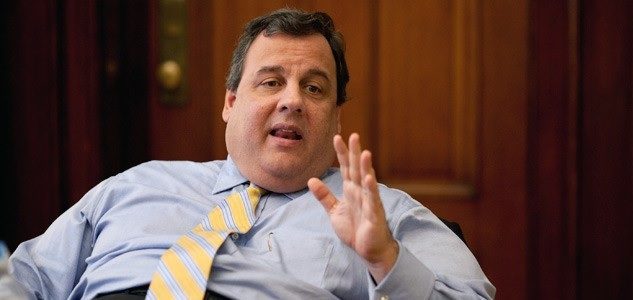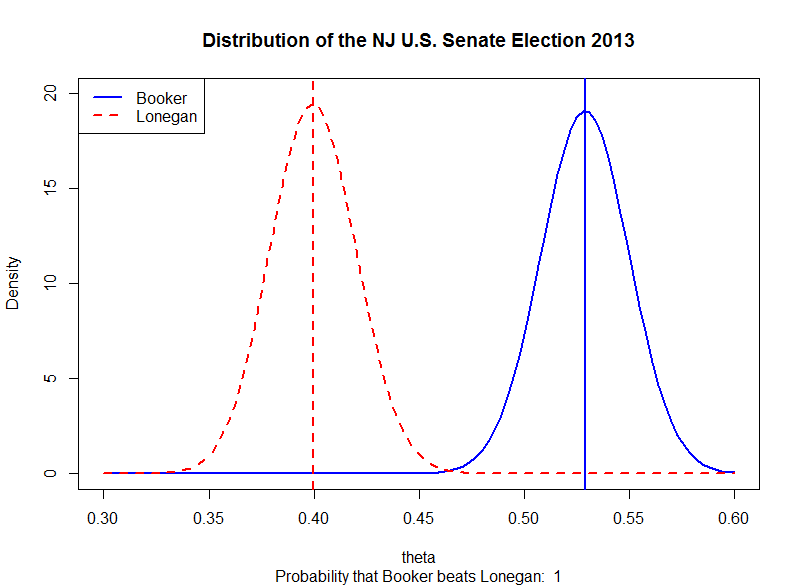
NJ Governor Chris Christie criticized for expensive extra NJ election timed for political reasons
Democracy, elections, and voting at Democracy Chronicles
Election expert Richard Winger posted on his website Ballot Access News recently an article about the decision of Governor Chris Christie to hold an unusual extra NJ election day this month at a surprising cost. Holding elections that are certain to have less voters than in Presidential years is controversial and has drawn criticism. The Ballot Access News piece, Salon Carries Rob Richie Opinion Piece About New Jersey’s Two General Elections This Year that are Only Three Weeks Apart, explained the issue in this way:
As previously noted, New Jersey holds two statewide partisan general elections in the next few weeks. Voters vote on October 16 for U.S. Senate, and then on November 5 for Governor and legislature. The two elections would both have been on October 16 if Governor Chris Christie had not vetoed AB 4237 last month. As a result of his veto, election administrators are spending $12,000,000 that would have been saved if the two elections had been on the same day. Rob Richie of Fairvote has this article about this situation on Salon. Thanks to Rick Hasen for the link.
The Salon article Let’s not give Chris Christie a pass for election chicanery” is by Rob Richie,the executive director of FairVote, an organization calling for far reaching election reforms. He was pretty scathing in his critic of Chris Christie’s extra NJ election plan.

We all know the real reason for this “Christiecookery.” Christie wanted to keep the special election separate from his own re-election. As expected, Democrats have nominated Newark mayor Cory Booker, who is heavily favored to become the second African American elected to the U.S. Senate in the 21st century. With odd-year elections typically having lower turnout than even-year elections, Christie didn’t want a new surge of voters to upset his re-election applecart – or adversely affect Republicans in state legislative elections.
Richie also speaks about the broader problems in the system and some of the solutions:
Such manipulations run rampant in our elections. Democrats resorted to every trick in the book to keep independent Ralph Nader off the ballot in key states in the 2004 presidential race, even as Republican backers tried to help Nader repeat the “spoiler” role he played in 2000. Democratic House leader Nancy Pelosi strongly backed a redistricting reform ballot measure in Ohio in 2005 even while fighting a similar measure that year in her home state of California. Republicans in states like Florida, North Carolina, Texas, and Pennsylvania have passed laws that are clearly designed to hurt turnout among certain voters in the Democratic base. Most Republicans oppose congressional voting rights and statehood for the District of Columbia simply because the District would elect Democrats.
FairVote is a really impressive institution in a crusade to save the country through election reform and particularly election method reform. This is from their website:

Examples of FairVote’s pivotal role in introducing and drawing attention to innovative reforms include the attention now given to ranked choice voting, the National Popular Vote plan for president, voter preregistration for young people, universal voter registration, a constitutional right to vote, and fair representation voting forms of proportional representation.
FairVote sees these proposals as essential building blocks for the higher voter turnout, fairer representation and wider spectrum of ballot choices necessary to achieve a just society – one in which most Americans can elect representatives and hold them accountable, in which city voters are as important as suburban voters, in which people of color and women are as likely to win representation as white men and in which campaigns provide opportunities for substantive debate about a full range of policy ideas.
Leave a Reply